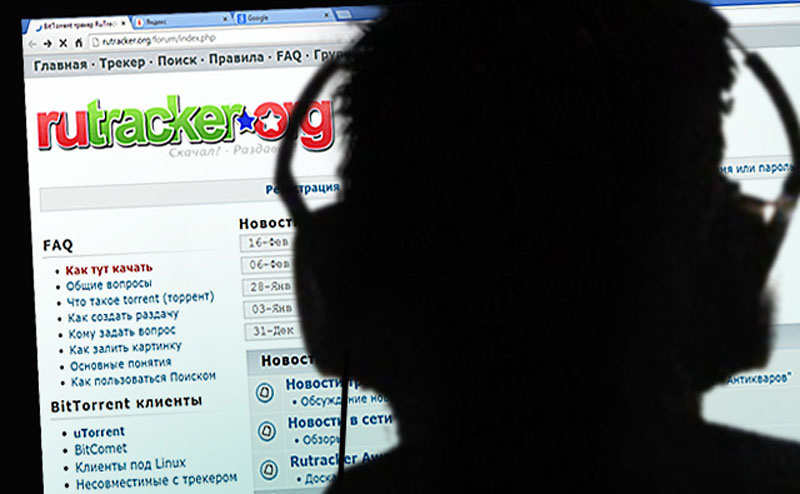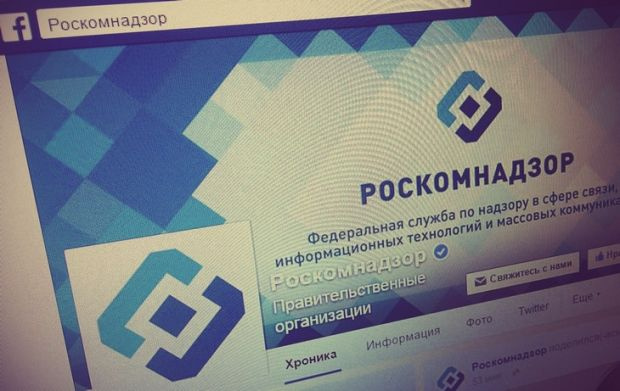Russia banned Tor and VPN. What now
On the freedom of the Internet in Russia once again come, and this time the situation is quite serious. A law has been passed against all anonymizers, VPN services, Tor and Opera browsers. Now, if they do not block access to all sites at the request of Roskomnadzor, they will be blocked in Russia. Also banned resources from now on can not be shown in the issuance of search engines. The law was adopted in the State Duma almost unanimously, and the very next day the president signed it. They say that the director of the FSB personally insisted on such urgency.

The new ban concerns us directly. We are engaged in delivery to Russia of purchases from American online stores. And many of them simply do not allow users with Russian IP to themselves. This is especially true for brand sites - Lacoste , Nordstrom , Tommy Hilfiger , American Eagle . Shopping from Russia does not make them weather, but the risk, from their point of view, is big. Since 2012, Russia is ahead of all other countries in terms of growth in the number of fraudulent operations with bank cards. Cards copy or steal them, and then pay them away somewhere far away to track down the hardest thing. Another reason - taking care of their boutiques and branches. If a user sees that in the USA a branded item costs $ 175 (10,500) rubles, and in the Russian Federation - 23,500 rubles, who will buy it in his mind in a boutique? Sly people have reached the point that they measure things in a store, look at what they need, and then go home and buy it in America at two times cheaper. Sellers from this strategy is not happy.
As a result, some sites completely block any access for Russians ( Kohl's , Target ). Others arrive more cunningly: having noticed the Russian IP address, they are redirecting to a domestic or international store, with a completely different assortment and prices ( AE , J.Crew ). Access to the most profitable American section is possible only through VPN or anonymizer. We recommend them to use when shopping. Until recently, it was completely legal. But the new law has already been passed, Putin has signed it, and now there are questions.
What is the essence
FSB and Interior Ministry officials will monitor VPNs, anonymizers, and browsers through which Russians get access to prohibited sites. Internet providers will be required to collect information on the management of VPN and proxy services, calculate their owners, determine the office address and location of servers. If a service to bypass blocking does not block all sites from the Roskomnadzor list on its side within 30 days, it can be banned. This means that access to its servers will be blocked, and the site - blocked. Or they will even add banned sites to the registry (now there are already about 80,000 of them, and adding a couple of hundred sites will not change anything).
The likelihood that all VPN services will obediently provide the FSB with all the information about themselves and will overlap every new site that has fallen into disfavor with Roskomnadzor is almost zero. But this only means that these sites themselves will be blocked by Internet providers. So if you wanted to set yourself a couple of VPN services, but have not done so yet, now is the time. Almost all the rules of the new law come into force on November 1, 2017. Some providers have already begun to operate since the publication . There is no time to hesitate.
Chinese experience
In the matter of blocking, Russia follows the path of the Celestial Empire, with its “Great Internet Wall of China”. From there, technology is adopted how it should work. To date, all foreign media published in Chinese and all foreign social media, including Twitter, Facebook and YouTube, are banned in China. About two million Chinese are engaged only in what monitors and blocks the "wrong" statements of people on the Internet. This, for example, more than the Russian teachers and doctors combined.

The process of blocking sites and VPN services works like a pipeline. New resources are forbidden every day by the thousands. Within the country, there is a huge market of semi-legal VPNs (both for PCs and mobile devices) - about 50 million active users, that is, about 10% of the Internet population. All of them are accustomed to regularly migrate from service to service, as soon as their government prohibits something new.
In Russia, great hopes are placed on the Tor browser. So, in China, it does not work - either directly or through the bridge. Blocked by most providers. Those commit to install special DPI-equipment (Deep Packet Inspection), tracking packets of transmitted data. It is able to distinguish encrypted traffic from Tor or VPN from a normal HTTPS signal. So new ways to bypass locks for a long time do not stay.
Will they be able to block everything
In Russia, most likely not. The purchase and implementation of DPI-equipment costs a lot of money, which is unlikely to be found in the coming months by the government or Internet service providers. This means that individual blocking of the service after the service remains, if it does not fulfill the conditions of Roskomnadzor. Some VPN providers, of course, will fulfill the will of the authorities and restrict access for Russian customers. But most of them are foreign firms with clients from all over the world who wanted to spit on Russian legislation. They will not open their data for providers, and they will not block eighty thousand sites.
For us, Pochtoy.com, such a course of events is in fact even worse. Banned sites in Russia, we do not visit. But we need our VPN services for free shopping. If they do not obey, they will be one of the first to wait for a blocking queue. Connecting to them will be problematic, and downloading new programs / applications and browser add-ons is almost impossible.

Roskomnadzor also can now begin to block third-party sites that post information about circumventing bans. So, apparently, from now on, it is dangerous to recommend that customers connect to foreign sites via VPN (or, especially, Tor). You can get into the chain of random blind locks. Watch your hands: first, Roskomnadzor blocks some resource that it does not like. Then he blocks the links to the VPN or anonymizer, if it opens access to this resource. And then it blocks our site, because it contains links to such a VPN service. With them, it will not lose, and the Chinese precedent in plain sight.
Is there a legal way out
VPN itself is not only legal, but also an absolutely useful technology. It is used by private, respectable users, and large companies. It allows you to protect information from cybercriminals. Changing the IP address is not a goal, but a side effect of traffic encryption due to the fact that data is processed through the server of the service provider. Understanding that VPN is needed for cybersecurity, in the new law there is a special point about using this technology for corporate purposes.
Private users who get to the lock bypass services, but do not talk to anyone about it, should also have no consequences. There is no ban on use (yet). Even in China for the inclusion of anonymizers and VPN do not plant. Maximum - disable mobile communication on the phone. The only sensational case was when several thousand individuals were imprisoned for watching via VPN pornography. But here the problem was precisely in the final resource, and not in the service itself. Viewing porn in any form (even the Internet, even though DVD) in China is a terrible crime, you can be imprisoned for it for the rest of your life. And after a public outcry, showing all its seriousness and once again proving that "There is no sex in the USSR", the Chinese peace officers calm down. More such cases were not.

Individuals who use prohibited services to access third-party sites and not blocked content are not penalized even in China. In addition, there are other ways to bypass locks, in fact, do not violate anything. The easiest is to use two VPNs at once. Come on one, which is not prohibited in Russia, and through him go to the one through which the site you need is available. In this case, the first VPN service will not know where you ultimately want to go, and you can’t forbid anything. And the second one does not know at all that you are a user from Russia, and he has no right to block anything. Even if both services decide to exactly execute the letter of Russian law, you will go to the desired site.
For ourselves, we decided three things. First, make a greater emphasis on the " Full support " service. With its help, our customers can order goods from any American site, even if it blocks the IP address or does not accept bank cards from Russia. The trick here is that our operators themselves are in the USA. From there it is easier for them to control the purchase and delivery, to resolve issues if they arise. And the quirks of Roskomnadzor, the prohibition of Tor, anonymizers and VPN on their ability to buy gadgets and brand things have almost no effect. The service costs from $ 10 to 5% of the purchase amount, and saves tens of thousands of rubles, so we have no doubt about its demand.
Secondly, to remove the recommendations of specific services to circumvent locks, especially with links. It may be craven, but we do not want to become a good example for others, as happened in China with porn lovers. Thirdly, the new law means for us a greater emphasis on large stores, which are loyal to customers from Russia. Fortunately, there are many more, from 6PM and H & M to Amazon and eBay, and all the main popular products are there. They in any case account for the bulk of our business. And then, in any case, there will be a complete overlap of purchases from abroad, in order to somehow support Russian stores losing competition in prices (we already wrote about this in a blog ). It remains to live one day, watching the situation.
PS If you order something in the US - register with us and enter the promotional code GEEKTIMES. We give $ 7 for the delivery of any goods to each client. And if something is unclear or you don’t want to risk with VPN, ordering from brands, turn on “ Full support ” and just wait for the goods in Russia, and we will deal with the purchase and clearance.
All Articles